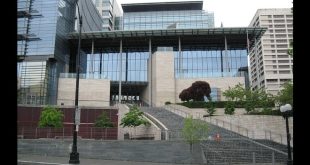If you implement a policy to reduce school suspensions and expulsions, and the discipline rate goes down as a result, can you call the new policy a success?
The bad behavior hasn’t gone away. It simply means that teachers — and students who want to learn — have to suffer the consequences of disruptive students. This is common sense and a foreseeable result. What message does this send to students who know how to behave?
According to Chalkbeat, an education news site, suspensions at government schools in New York have dropped by almost a third as a result of Mayor Bill de Blasio’s order that schools find “alternative” ways to deal with troublemakers. But at whose expense?
Because black students in government schools are suspended or expelled disproportionate to their numbers, liberal politicians want to lower the numbers to mask the problems. Teachers and other students have to deal with the fall-out.
From Chalkbeat:
Teachers at a few schools say their principals won’t give suspensions even when warranted, inviting some students to act out and threatening their peers’ learning and even safety. Meanwhile, the principals union has suggested that the policies diminish principals’ discretion. And the head of the teachers union, the mayor’s staunch ally on most issues, has brought concerns about the policy’s rollout to the schools chancellor.
…
“Schools need to stop the over-reliance on punitive discipline,” said Anna Bean, campaign coordinator for Teachers Unite, an educator-led advocacy group that backs the policy changes. “But a lot of schools are definitely struggling with what do we do instead.”
What’s wrong with “over-reliance” on punishing students who break rules and codes of decency? Teachers aren’t cops — who actually sign up to deal with such people — and typically don’t have the training or the time for “interventions.”
At one school in the Bronx, a student tried to stab another with scissors. The attack was recorded as “reckless behavior.” The student served an in-school suspension, although the school’s policy warrants (or used to) an out-of-school suspension.
Perhaps equally important is teachers maintaining order in the classroom:
The restrictions on suspensions for insubordination — such as cursing at a teacher or refusing to leave a classroom — have been an especially difficult transition for teachers, some administrators say. The teachers see those incidents as undermining their authority and allowing a student to disrupt learning for an entire group. In such cases, a phone call home or a meeting strikes some teachers as insufficient.
A slack discipline policy — and teachers losing control of their classrooms — are just more reasons to homeschool children or send them to private schools. Fortunate parents in school-choice zones can send their children to better schools.
 CURE News and Clergy Blog News and Commentary for Christians
CURE News and Clergy Blog News and Commentary for Christians




What happens ? Crisis. Chaos….and, then, the communist “solution”: ORDER OUT OF CHAOS.